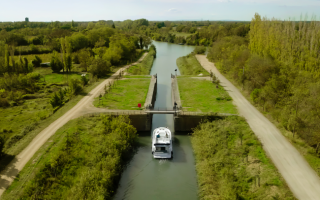Driving in France: Right hand drive
Everything you need to know about driving licences in France…
Anyone driving a motor vehicle on the roads in France must be 18 years or older and have a valid driving licence (permis de conduire). This licence must be carried on all journeys and must be shown to an official if they ask to see it.
All UK-issued licences are valid in France as long as certain requirements are met. This means that you may continue to use your valid UK licence even if you move to France. You also have the right – if you prefer – to exchange it for a French one. In fact, all EU-issued licences are valid in all other EU countries.
All EU driving licences issued since 1 January 1983 conform with the Community model, but they may be in paper or plastic form and can look quite different. In March 2006, the EU Council of Ministers approved plans to create a single European driving licence to replace the 110 different models currently in existence throughout the EU. The plan is to phase out national licences between 2012 and 2032. But until that process is complete, there will be some discrepancies between the different countries’ laws; this can cause confusion.
If you have a UK-issued licence and take up residence in France, you need not exchange your licence for a French one. However, French licence regulations will apply to your UK licence, specifically the period of validity (which in France is currently lifetime, with no age-related medical examinations) and the minimum driving age, which is 18. An exchange becomes compulsory if you commit an offence – this is so that points can be retracted.
While it is completely legal to use the UK-issued licence until it expires, it is not possible to change the address on the licence to an address outside of the UK. This has led to much confusion, although it is generally accepted within the rules across the EU that the address on the licence will be from the issuing country and may not be the drivers’ actual residential address. In fact, the DVLA has issued a statement saying: “You don’t need to notify DVLA of a change of address when moving to live abroad.”
However, if you are resident in France and your UK licence falls due for renewal, you must renew/replace it by applying to the French authorities for a French licence. This is also the case if the licence is lost or stolen (a certificate from the DVLA may be needed). French exchange
So, if the time has come to exchange your UK licence for a French one or if you’ve simply decided a French licence will be more convenient, here’s how you go about it. The process is relatively quick and straightforward; it is free in most departments. You need a form called a Demande d’�change de permis de conduire (Cerfa n�11247) which can be requested from the pr�fecture, some town halls (mairie), or be downloaded from the government website. Proof of your identity (a passport) and proof of your address (recent utility bills), proof of no suspensions or limitations on the existing licence, two identity photographs and a stamped, self-addressed envelope should be provided along with the completed form.
Some pr�fectures also request a tax statement – the occupier’s tax declaration (taxe d’habitation) or a taxe foncier statement. The local mairie, issues the taxe d’habitation declaration annually in October.
You’ll also need your original driving licence and may need a translation by a traducteur expert-jur� (again, this varies across the regions of France with some requiring a translation). Contact details of official translators are available at the mairie, some police stations and the pr�fecture.
The licence is exchanged for one in the equivalent category. Once the French licence is issued, your UK licence is sent back to the UK. Be aware that a towing permit issued on some licences may not be included in the new French licence.
While, in principle, professional licences may be exchanged for equivalent ones, this may be more complicated, depending on the licence classification. Drivers of buses, taxis, light and heavy goods vehicles and haulage vehicles (LGV and HGV – those other than standard A and B category) may be expected, by the pr�fecture, to provide a letter specifying the qualifying category. A medical certificate is also required and you may find in some cases there are age restrictions for professional licences: a minimum age of 21 years and maximum of 60 years.
The French government web portal (available in French at www.service-public.fr) provides a useful transport section with information. See the international section under the heading permis de conduire for all the up-to-date details. The photocard problem
While valid UK driving licences are valid in France for the life of the driver, what happens when the photograph on a Photocard expires, 10 years after issue?
Logic says that the licence may have expired but both the UK and French governments are taking a more pragmatic approach than that. While the photograph may have expired, the entitlement to drive remains and that’s good enough for the French authorities who are comfortable to let you continue driving.
And if you want to drive on a visit back to the UK then the DVLA has said that it regards overseas residence as satisfactory reason for having an expired photograph on a Photocard. Drivers may wish to get this in writing from the DVLA before testing the theory on British roads, however, as it is unclear if the DVLA’s opinion has been communicated to all the country’s police forces: http://www.dvla.gov.uk/contactus.aspx
Share to: Facebook Twitter LinkedIn Email


